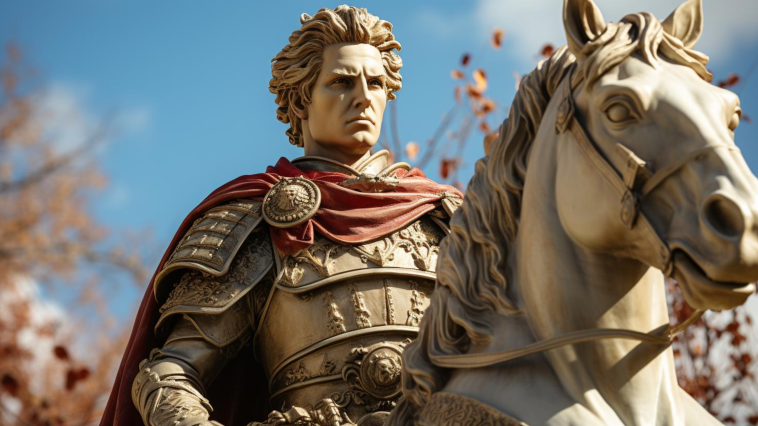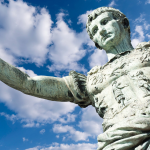Alexander the Great was one of history’s most celebrated military commanders and a visionary leader who left an indelible mark on the ancient world. Born in Pella, Macedonia, in 356 BC, he was the son of King Philip II and Queen Olympias. From a young age, Alexander displayed an exceptional intellect and a fierce determination, qualities that would later define his remarkable career.
Educated by the renowned philosopher Aristotle, Alexander’s early years were shaped by lessons in philosophy, science, medicine, and literature. This education, coupled with his innate military prowess, prepared him for the monumental tasks ahead. At the age of 16, he demonstrated his strategic acumen by leading a successful campaign against the rebellious Thracian Maedi, a testament to his early promise as a leader.
In 336 BC, following the assassination of his father, Alexander ascended to the Macedonian throne. His first major challenge was to consolidate his power and secure the Greek states, which he accomplished with decisive action and military skill. Once his rule was firmly established, Alexander turned his attention to the Persian Empire, embarking on a campaign that would become legendary.
Alexander’s conquest of Persia began in 334 BC with the Battle of Granicus. He swiftly moved through Asia Minor, securing victories at Issus and Gaugamela, where he decisively defeated the Persian King Darius III. These victories not only demonstrated his tactical brilliance but also his ability to inspire and lead his troops through daunting challenges.
His empire expanded further as he marched through Egypt, where he was welcomed as a liberator and declared a pharaoh. He founded the city of Alexandria, which would become a center of learning and culture. Alexander’s ambition knew no bounds, as he continued his conquests into Central Asia and the Indian subcontinent. His encounter with the Indian King Porus at the Battle of the Hydaspes in 326 BC showcased his ability to adapt to new warfare tactics and terrains.
However, his relentless pursuit of expansion took a toll on his army, and they eventually mutinied, forcing him to return to Babylon. In 323 BC, at the age of 32, Alexander fell ill and died, possibly due to malaria, typhoid fever, or poisoning. His untimely death left a power vacuum, leading to the fragmentation of his empire among his generals, known as the Diadochi.
Alexander the Great’s legacy is profound. He spread Greek culture across the known world, leading to the Hellenistic Era, where Eastern and Western cultures mingled. His military tactics are still studied in military academies worldwide, and his story continues to inspire leaders and scholars alike. Alexander the Great remains a symbol of unparalleled military genius and visionary leadership.




